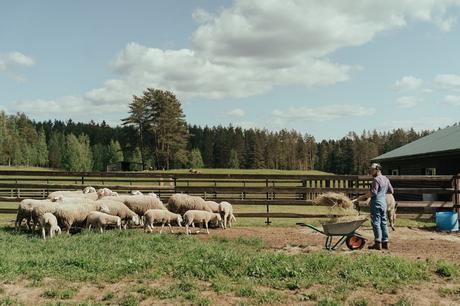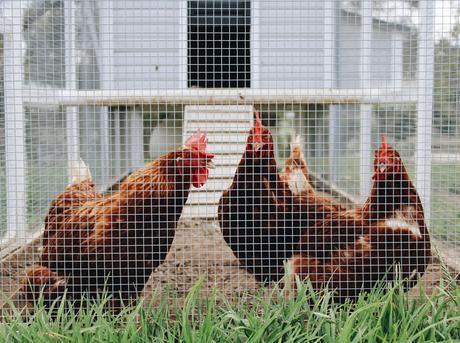Do you have stars in your eyes whenever you think about moving to a remote location and living off the land? Then, come back down to earth by learning about the challenges you'll likely encounter when starting a homestead.

Photo credit: Pexels
The rising cost of land and homes makes it almost impossible for many people to buy houses these days, and purchasing the land to start a homestead is a major stumbling block for some.
You should scale back your expectations when first starting out. Instead of fantasizing about 100 acres of rich farmland, consider starting with a smaller homestead. It's much easier to start with a smaller plot, anyway, and you only need about one acre of land per person.
It's natural to want the best tractors, generators, chainsaws, and trucks when you're homesteading, but deciding which ones are best for your sustainable living operations can be tricky. For example, even though you might be dreaming about owning a John Deere tractor, you probably don't need one if you're homesteading on less than a few acres.
It's important to pace yourself when you're homesteading. Many homesteading operations don't need a brand-new pickup truck, and you might be able to operate just fine with a riding lawn mower and a few attachments.
What's the best kind of chicken coop? How big of a pen do you need for your pigs? These are the kind of questions you're going to be asking when you're first starting. Building fences and pens is hard work, and it's not easy to do without the proper tools and building skills.
As experienced poultry farmers will tell you, chickens are messy animals, and using a portable chicken coop is one of the best ways to raise chickens. With a mobile chicken coop, you can move your hens around the homestead, and you'll get cleaner eggs and healthier meat when your chickens can eat fresh grass and insects.
There's a sharp learning curve when it comes to figuring out how to plan and build pens for livestock, but with solutions like portable chicken coops, you can avoid escaped animals and cut your learning time down to almost nothing.

Photo credit: Unsplash
While many people recognize that they live in a society that thrives on consumerism, few take stock of their own tendencies toward spending on frivolous items. Learning to do more with less can be difficult, especially if you've never had to go without, but it's one of the primary tenets of homesteading.
Even if you're still in the planning stages of homesteading, you can start learning how to do more with less right away. Stop spending, cut down your grocery budget, and quit dining out. Take a hard look at where every dollar in your budget goes. Before you spend money on anything, consider whether you can do without it.
Sadly, there isn't a homesteading school to learn the necessary skills for sustainable living. It's more like the school of hard knocks, and it can take years to get a degree.
Homesteading requires a vast array of skills. Knowledge about growing a garden, raising livestock, and preserving food are critical skills. You'll also need to know how to repair fences, construct buildings, and make food from scratch.
With skills and knowledge, you'll be more successful as a homesteader. There are numerous ways to learn more, and even if you've already started homesteading, you can advance your skillsets to make your work more efficient. Look for classes at your local extension office, watch YouTube videos, and meet with people who are operating successful homesteads. Networking at your local farmer's market is a great way to start.
Every state has different regulations in place about disconnecting from power grids, raising animals, and building. Unfortunately, when you're homesteading, you have to participate in so many different types of activities that it can be hard to know all the rules you must follow.
Here is a list of the major areas you need to learn about to understand laws about homesteading in your state:
- Property taxes
- Building codes
- Zoning laws
- Land use restrictions
- Hunting and fishing laws
- Firearm laws
- Animal husbandry laws
- Water rights
- Power grid laws
Water is critical to homesteading operations, and when you're in the beginning stages of homesteading, you may not have an off-grid water system in place that makes life easier.
Just think about all the homesteading operations that require water. You need it for your animals, home, garden, and yard. Of course, having a well is one of the best options for your off-grid farm, but you might need to supplement it with rainwater collection systems, water tanks, and spring-fed watering systems. You can also use water-saving systems like drip irrigation systems for your gardens and orchards.
Providing water to animals during the winter in cold climates presents a whole new set of challenges. If you have electricity, you can use livestock water heaters. However, without electricity, you'll just have to keep providing fresh water for your animals during subfreezing temperatures.
Many people are attracted to homesteading, but it's something that requires knowledge about a lot of different topics. It's important to realize that it takes time to learn everything and get started, but if you have a goal and continue working towards it, you'll be living off the grid sooner than you think!
